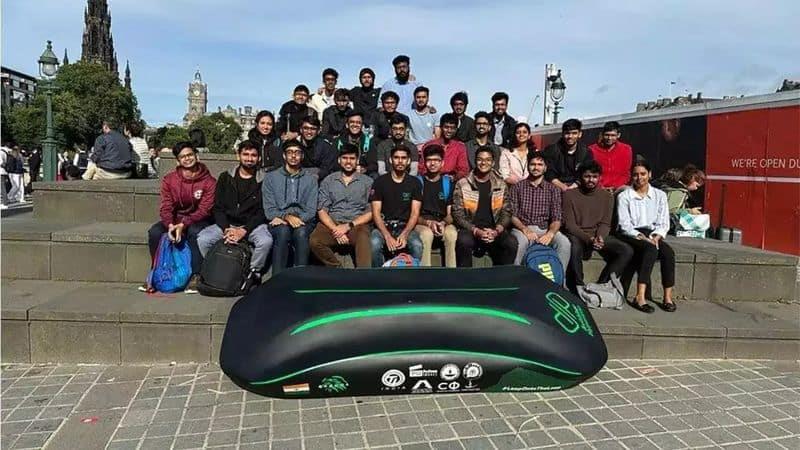IIT Madras Students Create ‘Avishkar Hyperloop’: Vacuum-Powered Pod To Travel 350 Km In Just 30 Mins
The Avishkar Hyperloop, the only Indian entry to reach the finals of Elon Musk's SpaceX International Hyperloop Pod Competition, gained recognition during an event in Edinburgh.
IIT-Madras to BITS Pilani-7 top engineering colleges in India
Hyperloop technology offers a new way of travelling at high speeds, similar to a train, but inside partial vacuum tubes. Unlike planes, which can be noisy, polluting, and require large airports, Hyperloop pods reach incredible speeds of up to 1200 kilometres per hour while emitting no carbon emissions. With precise scheduling, passengers can save a significant amount of time.
Afghanistan woman builds secret home 'lab', beats Taliban ban; bags IIT-Madras degree
Medha Kommajosula, the leader of the student team behind the project, mentioned, "This year we came very close to validating our idea. We are on the way to proving this experiment in our imagination with a physical experiment. If we continue our work at the current pace, we will definitely be able to build our first Hyperloop train in the next 10 years."
Supported by a grant of Rs 8.34 crore from the Ministry of Railways, this groundbreaking project has the potential to reshape India's transportation and showcase the country's technological prowess to the world.
Legal Disclaimer:
MENAFN provides the
information “as is” without warranty of any kind. We do not accept
any responsibility or liability for the accuracy, content, images,
videos, licenses, completeness, legality, or reliability of the information
contained in this article. If you have any complaints or copyright
issues related to this article, kindly contact the provider above.
Most popular stories
Market Research

- 1Inch Unlocks Access To Tokenized Rwas Via Swap API
- What Is The Growth Rate Of The Europe Baby Food And Infant Formula Market In 2025?
- BTCC Announces Participation In Token2049 Singapore 2025, Showcasing NBA Collaboration With Jaren Jackson Jr.
- Ecosync & Carboncore Launch Full Stages Refi Infrastructure Linking Carbon Credits With Web3
- New Silver Launches In California And Boston
- United States Fin Fish Market Size Forecast With Demand Outlook 20252033






















Comments
No comment